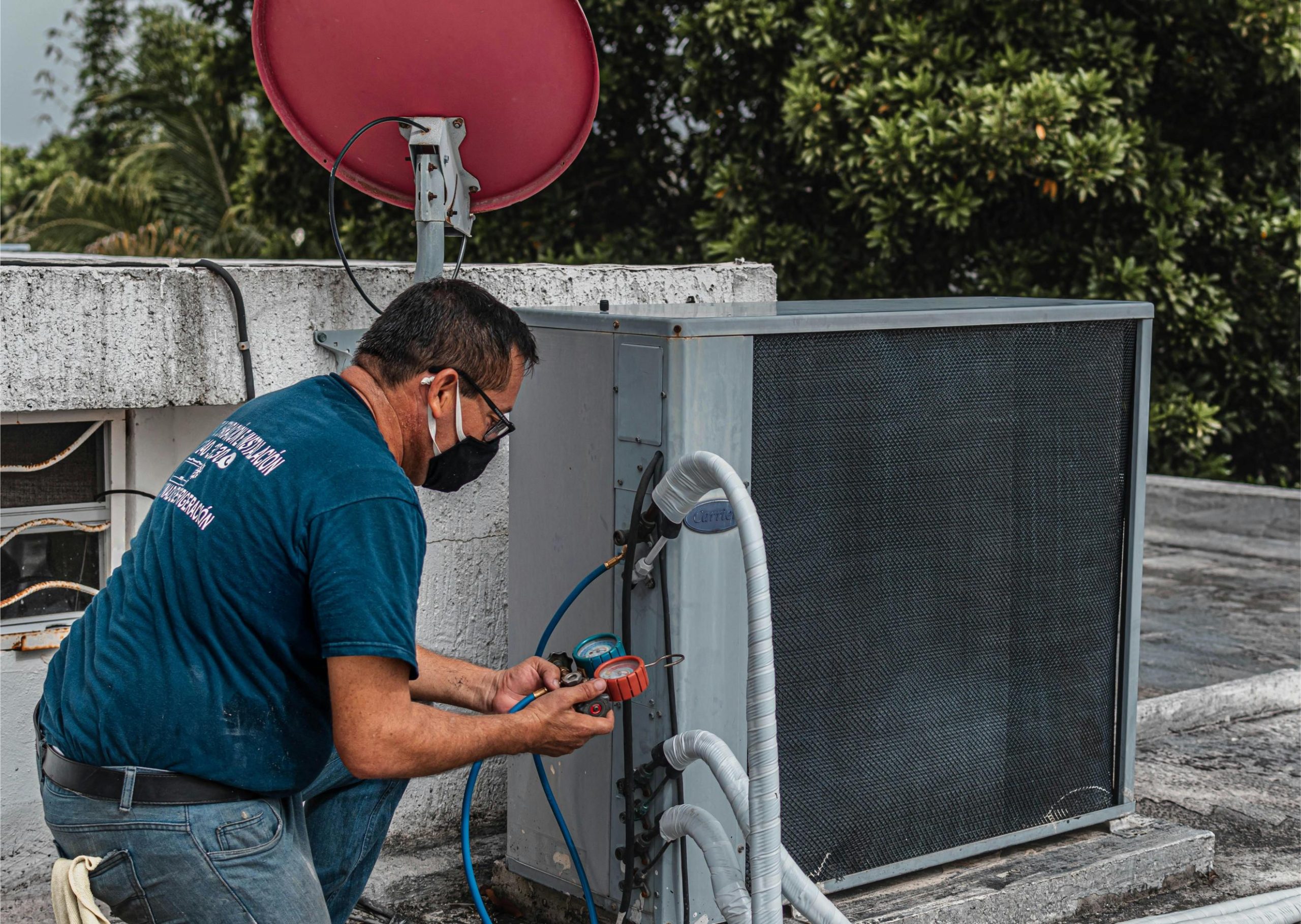Does Home Insurance Cover HVAC Systems?
The short answer is: It depends. Home insurance policies typically cover HVAC systems under specific conditions, but exclusions may apply. Let’s break this down further:
1. Covered Perils
Home insurance usually covers damage to your HVAC system caused by covered perils. These are events that are explicitly stated in your policy, and may include:
- Fire: If your HVAC system is damaged or destroyed by a house fire, your home insurance will typically cover the cost of repairs or replacement.
- Hail or Windstorms: External units, such as air conditioning systems, that suffer damage due to severe weather like hail or wind are usually covered.
- Lightning Strikes: A lightning strike that damages your HVAC system may also be covered.
- Falling Objects: If a tree falls on your home during a storm and damages your HVAC system, your policy may pay for repairs.
2. HVAC Coverage Under Dwelling or Personal Property
HVAC systems may be covered under different sections of your home insurance policy, depending on their location and nature. For example:
- Dwelling Coverage: If the HVAC system is built into the home (such as central air conditioning or furnace), damage may fall under your dwelling coverage.
- Personal Property Coverage: If you have portable units like window air conditioners, these may be covered under personal property insurance.
3. Wear and Tear Is Not Covered
One key point to understand is that home insurance does not cover normal wear and tear or system failure due to age or lack of maintenance. If your HVAC system breaks down due to age, deterioration, or lack of care, the repair or replacement costs will likely fall on you.
This is why it’s crucial to regularly maintain your HVAC system, ensuring that it stays in good working condition and potentially prolonging its lifespan.
Common HVAC-Related Issues Covered by Home Insurance
1. Storm Damage
One of the most common reasons HVAC systems are covered by home insurance is due to storm damage. Whether it’s a windstorm, hail, or lightning, external elements such as the air conditioning condenser located outside the home are vulnerable. If a storm severely damages the HVAC unit, your policy may help cover the repair or replacement costs.
2. Fire Damage
In the unfortunate event of a house fire, HVAC systems can sustain considerable damage. Whether the furnace, air conditioning, or ductwork is compromised, home insurance policies generally cover fire-related damages to the home, including the HVAC system.
3. Electrical Surge
Sometimes, HVAC systems can be damaged by power surges or electrical malfunctions. If a covered event such as a lightning strike causes an electrical surge that damages your HVAC, your insurance policy may provide coverage.
4. Water Damage from a Covered Peril
Water damage can sometimes affect HVAC systems, especially if it’s caused by a broken pipe, roof leak, or flooding from heavy storms. If the water damage stems from a covered peril, your insurance may cover the resulting damage to your HVAC system.
HVAC Issues That Are Not Covered
While home insurance provides protection against some HVAC-related incidents, several scenarios are not covered, including:
1. Wear and Tear
As mentioned earlier, home insurance policies won’t cover HVAC repairs or replacements resulting from normal wear and tear. If your system breaks down due to old age, or you’ve neglected regular maintenance, you’ll likely have to cover the costs yourself.
2. Mechanical Breakdown
If your HVAC system fails due to internal mechanical issues that aren’t related to a covered peril (such as a fire or storm), home insurance won’t typically cover the costs of repair or replacement. This includes issues like a faulty compressor or broken motor.
3. Flood Damage
While home insurance covers certain water-related issues, it does not cover flood damage. Flooding due to natural disasters like heavy rain or hurricanes will require separate flood insurance to cover the damage, including any effects on your HVAC system.
4. Earthquakes
Similarly, home insurance doesn’t cover damage caused by earthquakes unless you have earthquake insurance. If your HVAC system is damaged by seismic activity, you’ll need to ensure your policy includes earthquake protection.
How to Protect Your HVAC System

While home insurance can cover certain HVAC-related issues, it’s a good idea to take extra steps to ensure your system remains protected. Here’s how:
1. Regular Maintenance
HVAC systems need regular maintenance to function efficiently and avoid costly repairs. Make sure to:
- Change filters regularly (every 1–3 months).
- Schedule annual inspections by a licensed HVAC technician.
- Clean the outdoor units to remove dirt, debris, and leaves.
- Check for leaks, strange noises, or system inefficiencies.
Keeping your HVAC system in good working order can extend its life and prevent problems that wouldn’t be covered by insurance.
2. Consider a Home Warranty
A home warranty can be a valuable addition to your home insurance policy. Unlike home insurance, which covers sudden and accidental damage, a home warranty can cover the cost of repairing or replacing your HVAC system if it breaks down due to age or mechanical failure.
Home warranties are available from various providers and typically cover appliances and major home systems, including HVAC.
3. Install Surge Protectors
Power surges can damage HVAC systems, especially during electrical storms. Installing surge protectors can help protect your system from electrical damage, reducing the chances of expensive repairs.
4. Upgrade Aging Systems
If your HVAC system is old or inefficient, consider upgrading to a more modern, energy-efficient model. This can help you avoid costly repairs and reduce your energy bills over time. While this is a significant upfront investment, the long-term savings and peace of mind are worth it.
Steps to File an HVAC Insurance Claim
If your HVAC system is damaged due to a covered peril, here are the steps you should take to file an insurance claim:
1. Document the Damage
- Take photos and videos of the damage to your HVAC system.
- Write a detailed description of how the damage occurred, including the date and time of the incident.
2. Review Your Policy
- Check your home insurance policy to confirm the specific perils covered and whether the HVAC system falls under dwelling or personal property coverage.
3. Contact Your Insurance Company
- Notify your insurance provider about the damage and file a claim as soon as possible.
- Provide them with the necessary documentation, including photos, descriptions, and any receipts or repair estimates.
4. Get an Inspection
- Your insurance company may send an adjuster to inspect the damage to your HVAC system and determine whether it’s covered under your policy.
5. Receive Compensation
- If your claim is approved, you’ll receive compensation to cover the repair or replacement costs, minus your deductible.
Final Thoughts
Understanding whether your home insurance covers HVAC systems is essential for protecting your investment and ensuring you’re prepared for any unexpected repairs. While home insurance may cover HVAC damage caused by fire, storms, or electrical surges, it generally won’t cover issues related to wear and tear, mechanical breakdowns, or lack of maintenance.
For comprehensive protection, consider regular HVAC maintenance, investing in a home warranty, and upgrading older systems. Additionally, always review your home insurance policy to ensure you have adequate coverage and avoid surprises when it comes time to file a claim.

